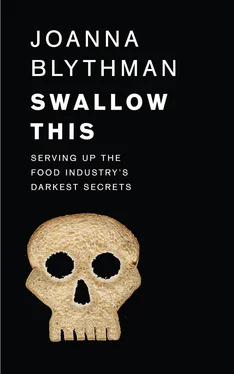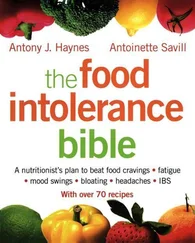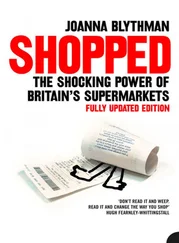According to the Food and Drink Federation, a body that promotes the interests of companies active in the field, food and drink manufacturing is ‘a great British success story’. Thanks to the steady stream of pre-prepared, convenience food it puts on our plates, the average proportion of household income spent on food has dropped from 50 per cent in 1914 to around 10 per cent in 2014. In fact, the UK now spends less on food than any country in the world, bar the USA.
We have been striding purposefully down this Anglo-American food path for decades. George Orwell clocked the trend back in 1937 in his book, The Road to Wigan Pier . ‘The English palate, especially the working-class palate, now rejects good food almost automatically. The number of people who prefer tinned peas and tinned fish to real peas and real fish must be increasing every year’, he wrote. He noted that in England at that time, a man over six feet was usually ‘skin and bone and not much else’, attributing this largely to ‘the modern industrial technique which provides you with cheap substitutes for everything’. He warned in no uncertain terms where the move away from home-cooked, real food might lead us: ‘We may find in the long run that tinned food is a deadlier weapon than the machine gun’.
How prescient Orwell was. Nowadays, the expression of our ongoing embrace of factory food in its myriad processed forms is rather different than in the 1930s, with an irony that would not be lost on him. A growing number of us are simultaneously overfed and undernourished, a crazy consequence of our reliance on food manufactured in an industrial setting. Whereas Orwell linked processed food consumption with excessive skinniness, today’s six-foot-tall man, like most other citizens, will most likely be carrying a good few kilos of excess weight. These days, a disturbing 60 per cent of the UK population is overweight; a quarter of us are obese.
Are we leaping to an unjustified conclusion when we lay a significant part of the blame for obesity, chronic disease and the dramatic rise in reported food allergies, at the door of processed food? There are several a priori grounds for seriously examining this possibility. Firstly, food manufacturers combine ingredients that do not occur in natural food, notably the trilogy of sugar, processed fat and salt, in their most quickly digested, highly refined, nutrient-depleted forms. Might these modern constructions be addictive? That proposition is gaining airtime. Secondly, manufactured foods often contain chemicals with known toxic properties – although we are reassured that at low levels, this is not a cause for concern. Thirdly, the processed food industry has an ignoble history of actively defending its use of controversial ingredients, such as partially hydrogenated oils, long after well-documented, subsequently validated, suspicions have been aired.
The precautionary principle doesn’t seem to figure prominently in the convenience food industry’s calculations, and such is the lobbying power of this influential sector, it does not loom large in the deliberations of our would-be regulators either. If it did, then steering clear of manufactured products that are very likely to prejudice your health would be a lot easier. All through this book, you will read examples of potentially harmful ingredients and processes being used in food and drink manufacturing, yet statutory bodies fail to restrict them because they do not yet have full, incontestable certainty of damage.
I would like to be able to report that the powers-that-be are working away in the best interests of the population to curb the processed food industry’s worst excesses. I would be delighted if the concerns I raise in this book could be swept away by strategic government action: better labelling, taxes on miscreant foods, and tighter industry surveillance. But I believe that hell will freeze over before the state takes radical action to protect us from the damage caused by processed food. Why? This industry is just so damn profitable.
The bottom line here is that there are already reasonable grounds to infer that a diet heavy in processed food is bad for us. We can wait for that contention to be ‘proven’, and the activities of the companies that sell unhealthy food to be restricted, or we can start operating our own personal precautionary principle by eating less of it, and cooking more of our own food from scratch.
This is not to say that there is no such thing as a healthy, wholesome manufactured food. I happily use many processed ingredients. Realistically, I am not likely to keep a house cow for milk, or make my own butter and cheese. Nor do I intend to grow my own grain and mill it into flour; although I know some inspiring people who do, and very much admire their commitment. I am a purchaser of bread, not a baker. I might, in a flush of enthusiasm for a new recipe, make some egg pasta from scratch, but usually, I’ll buy it in a packet. I don’t lie awake at night worrying about what effect canning might have on my anchovies or pilchards. I often grind my spices for a special dish because they are fresher and more aromatic that way, but pre-ground spices also sit usefully in my larder alongside other processed foods such as tomato paste, soy sauce, sesame oil, rosewater, olives, gherkins, oatcakes, mustard. When my mother no longer has any of her homemade marmalade or jam to give me, I’ll gladly buy some. My salads contain seeds that have been sprouted by someone other than me. Although I am intellectually enthused by the fashion for fermentation, I remain a more likely candidate for buying sauerkraut than making it. While I fully appreciate that it is possible to cure your own bacon, I’m just too lazy to try it.
In short, I have absolutely no intention of becoming a food neurotic, or living in splendid isolation as a Trappist monk. Like most of us, I am not always in control of what I eat, so I have to settle for the best option in the circumstances. Sometimes, I might be organised enough to bring my own food on a long journey, knowing that in quality terms, it will be streets ahead of anything I can buy, not to mention cheaper. But other times I still have to pick up lunch from a takeaway, trust my local delicatessen to make a reasonable quiche or sandwich, or politely eat a meal that I would never choose. I am also a restaurant critic, reviewing everything from chains to fine dining establishments on a weekly basis. Doing this job would be impossible if I was a purist, someone who took the attitude that my body is a temple that can never be sullied by processed food in any shape or form. I do not beat myself up if I can’t meet my highest aspirations for eating good food on a daily basis. I am a pragmatist. Food is my love, not my enemy. I will not allow my professional knowledge of how it is produced to spoil my appetite for it.
Yet what I choose to eat and drink starts from the over-arching principle that natural ingredients in their least processed forms have an inbuilt, effortless integrity that make them the best basis for a body and soul-sustaining life. Natural foods are brilliantly conceived and intricate little packages wherein every nutrient works in a companionable ‘one for all, and all for one’ synergy. When we prepare and eat natural foods, their wise completeness translates into palpable health benefits. Nutritionally speaking, the whole apple does much more for us than the apple juice, or the apple crumble, or the apple and oat breakfast bar, or the apple-flavoured gum, and it’s hard to overeat whole apples. Manufactured foods, by contrast, are put together by people who, although indisputably smart and capable, do not have Nature’s all-embracing, all-seeing intelligence. This is why so many of the products manufacturers create share the capacity to shorten our lifespans.
Читать дальше












